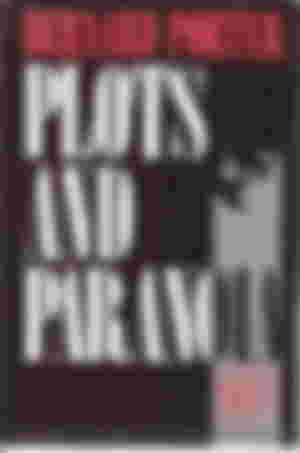Plots and Paranoia - A critical writing exercise
Chapter 1 of Plots and Paranoia by Bernard Porter is an interesting read. It has great topics in the period covered on the first chapter. He provides the reader with an historical analysis of espionage from ancient times through to the medieval ages. Porters main statement in the chapter is “espionage must have been ancient and continuous, because men and women are made… naturally curious, distrustful and prone to conspiracy.” and relates to the topic The Elizabethan Intelligence World. He supports this well, however there are some contentious issues raised by him that are hard to agree with towards espionage history before the Elizabethan era.
Porter mentions Sun Tzu writing The Art of War but fails to recognise the deeper meaning when Sun Tzu states: “So only a brilliant ruler or wise general who can use the highly intelligent for espionage is sure of great success. This is essential for military operations, and the armies depend on this in their actions”[i] the lesson to a commander of an army or state that they need to ensure the chapter the use of spies are adhered diligently[ii] . From this it is assumed that he read the writing briefly but failed to grasp underlying meanings of The Art of War and sounds as though his attention was focused on the strategic chapter of the writing. Unlike Walsingham who saw the value of paying for intelligence which is one of the tenets in Sun Tzu’s teachings.
Porter states that “Proper espionage systems require developed bureaucratic structures to implement them.p.7” fails to support his statement because there are gaps or no true passing of knowledge from one generation to another from ancient times till 1790. The continuous existence of espionage in his thesis statement means then that although there are periods where no espionage or secret service existed in records it does not necessarily mean that they did not exist. Porter shows that when there was a need to spies and intelligence work until the modern era the spies in the past had to relearn the lessons learnt from previous generations.
What Porter does well however is show the reader that men and women are distrustful and prone to conspiracy “resort[ing] more to secret agents and policemen the more… tyrannical they become”. This is a very valid point as the people in power in the period covered by chapter 1 focuses on rulers like Ivan the Terrible with his secret police who is a contemporary of Elizabeth. Porter shows his analyses of Elizabethan espionage era as accurate in how he supports his statement by tying in how a British monarch can accept to have spies protect them where the popular view of espionage was to balk upon it[iii].
Porter asserts that although intelligence agencies or the work existed through the ages there have been gaps in the progression “from one minister or regime to the next”. It supports how historians are prone to not write about espionage from the gaps which created a perpetual dilemma of when to start writing them based on the missing periods of history with factual evidence being scarce “…in the absence of a tangible result, that intelligence is a vacuous activity”[iv]. He shows the reader a strong reason why they exercise caution when forming an opinion on historical gaps when he states “Bearing this in mind, the lessons we can draw from these ancient times must be tentative (p. 6)”. From these statements I agree with being tentative and exercising caution when reading historical writings pertaining to espionage and secret service as a whole as there is not much information that can accurately be gleaned unless it is an espionage failure.
The style presented throughout out chapter 1 of Plots and Paranoia is very in-depth and this is a good thing as it shows the reader that Porter has researched his chosen topic with support from good references. He provides the reader with a good support to his thesis when he states “Ignorance breed paranoia, and consequently over-reaction. Spies can be a corrective to this” with his analyses of Francis Bacon’s famous quote “There is nothing makes a man suspect much, more than to know little” to allay suspicion or in Porter statement “distrust” the correct use of spies.
In conclusion “Sly and subtil fellowes: to 1790” by Bernard Porter provides the reader good basis to start their study into espionage history by painting a picture of the tainted and misunderstood nature of why it is necessary and to be cautious with the gaps in historical or broken line of succession of intelligence in the past. The strongest facet of this chapter is how he portrays the ease that Walsingham had in establishing a secret service because men and women are made… naturally curious, distrustful and prone to conspiracy in the Elizabethan era by his use of spies to successfully defend her. As a consequence this leads the reader to ask on what moral ground spies stand when they are undertaking intelligence work or being agent provocateur when they are adamant their supposed target is not innocent.
[i] Sun Tzu Translated Thomas Cleary, The Art of War, Boston & London, Shambhala, 1983, P. 172
[ii] Ibid. pp.168 - 172
[iii] Michael Smith, New Cloak, Old Dagger, London 1996, P. 16
[iv] John Keegan, Intelligence in War, London 2003, P. 2

Bibliography
Keegan, J. (2003). Intelligence in War. London.
Smith, M. (1996). New Cloak, Old Dagger. London.
Tzu, S. (1988). The Art of War. (T. Cleary, Trans.) Boston & London: Shambhala.
